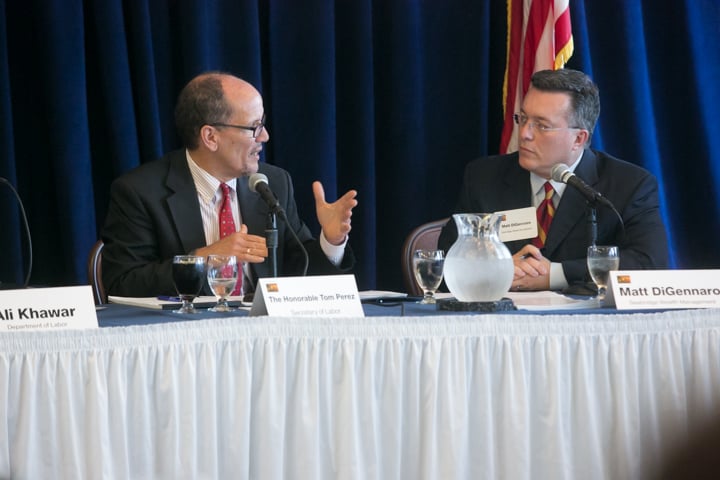A few months ago, two major announcements were made in the retirement plan space that profoundly affected plan sponsors and participants.
First, as most advisers know by now, the White House
directed the Department of Labor to move ahead with the proposal that would raise the standard of care for brokers and advisers handling retirement accounts to that of a “fiduciary” standard of care. Second, one of the largest 401(k) plan lawsuit settlements in U.S. history was announced. Lockheed Martin
agreed to write a check for $62 million to its own 401(k) plan due to excessive fees inside the plan.
Both announcements were, as they say, game changers.
In the few months since those two announcements, many
opinions have been expressed on both sides of the fiduciary issue, as to why each side has merit.
However, no matter which side of the issue one comes down on, one thing is very clear: this long-debated topic is no longer conjecture or speculation. It is serious business – and the president of the United States asked Labor Secretary Thomas Perez to do something about it.
As part of his personal initiative
to listen to the opinions of those this regulation will affect, Wednesday in St. Petersburg, Florida, Secretary Perez chaired a 26-person round table comprising CEOs, CFOs and directors of human resources for some of Tampa Bay's largest and most influential corporations and not-for-profit organizations. The event was hosted by Seabridge Wealth Management, a registered investment advisory firm that offers ERISA § 3(38) advisory services.
The topic of the round table was the very initiative Secretary Perez and President Obama announced on February 23rd – the fiduciary standard of care for all retirement plans in the U.S., and the importance of
eliminating the excessive fees and conflicts of interest currently embedded in many U.S. retirement plans.
The secretary set the tone of the discussion by putting the focus where it should always be, on the employee. He said, “Your most valuable assets are your employees, and all of you want to make sure they are in a position to make informed decisions.”
He went on to put the fiduciary standard into a context that everyone could relate to, saying, “There are three important decisions you make in life: medical, legal and financial. Doctors have responsibility to put the patient first. Lawyers have a clear obligation to look out for the best interest of the client. The financial piece is a challenge because it's on a continuum, and consumers are getting conflicting advice.”
As the discussion progressed, there seemed to be agreement that the establishment of a fiduciary standard, with the goal of eliminating conflicts of interest and excessive fees in retirement plans, was a good thing.
In fact, one executive remarked, “Why is this even a debate? This is something that makes so much sense I am confused as to why anyone could oppose a rule that does so much good for plan participants.”
As obvious as the benefits are to plan participants under a new fiduciary standard, there will always be detractors. That is just the way our system works.
With that in mind, there are conversations that need to take place by the key stakeholders of every retirement plan in the U.S. These conversations need to include individuals who are independently qualified to render expert opinions on what is really happening within their plan – not just what the current plan broker or plan provider tells them.
To that point, several CEOs remarked that the broker to their respective plans told them, or someone at their company, that they are fiduciaries – which cannot be true, given brokers cannot legally be fiduciaries. But, up until today's round table, they did not know that and had little basis to question those assertions.
In addition to conflicts of interest and excess fees, this is yet another important item plan sponsors need to look into on behalf of their plans.
It was clear the round table attendees now have a new perspective on the retirement plans their companies offer to employees – thanks to Secretary Perez and his obvious commitment to do what he can do to help American workers attain the best retirement possible.
Matt DiGennaro is the founder and CEO of Seabridge Wealth Management.







